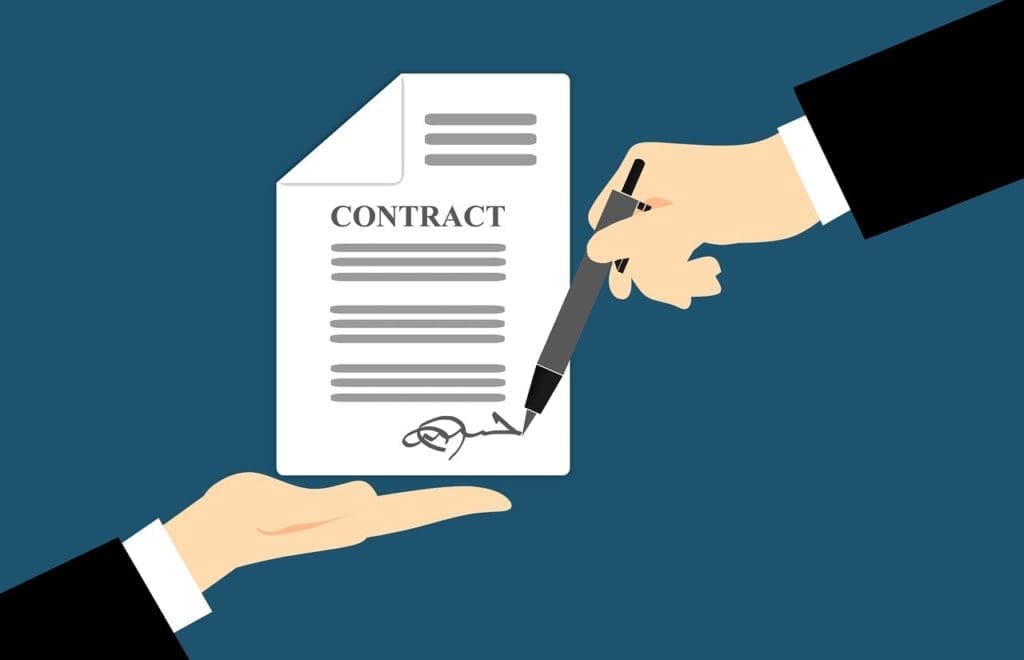James Earl Jones, a legendary actor known for iconic roles such as Darth Vader in Star Wars and Mufasa in The Lion King, passed away at age 93, leaving behind a remarkable legacy. His contributions to film, theater, and television are unforgettable, but his approach to estate planning offers valuable lessons for individuals in Nevada. While details of his estate remain private, the principles reflected in his life provide critical insights into the importance of thoughtful planning.
For Nevada residents, estate planning is not only about distributing assets but also about safeguarding privacy, addressing family dynamics, and leaving a legacy that reflects personal values. By working with an experienced Nevada estate planning attorney, such as Anderson, Dorn & Rader Ltd., families can create tailored plans to ensure their wishes are honored.
One of the most significant estate planning tools James Earl Jones likely used was a trust. Trusts offer a way to manage and transfer assets while maintaining privacy. Unlike wills, which become public record during probate, trusts keep financial matters confidential. This approach aligns with Jones’s preference for privacy, both in life and in death.
For Nevada residents, trusts provide an opportunity to bypass probate entirely. This can save time, reduce legal costs, and prevent unnecessary public scrutiny of personal finances. Whether you are protecting real estate, business interests, or personal assets, trusts are a cornerstone of effective estate planning. A Nevada estate planning attorney can guide families in establishing trusts that align with their goals and ensure seamless asset management.

James Earl Jones’s family structure, including his son Flynn and extended relatives, demonstrates the complexities that can arise when creating an estate plan. Balancing the needs of an only child, step-relatives, or other beneficiaries requires careful consideration. In Nevada, addressing these dynamics can prevent future disputes and ensure that all parties feel fairly treated.
Estate plans in Nevada often incorporate trusts and conditional gifts to address unique family circumstances. For instance, parents may establish trusts for a single child while designating other assets for extended family or charitable causes. Additionally, including clear instructions in estate planning documents minimizes ambiguity and helps loved ones navigate decisions with confidence.
Balancing family relationships in estate planning is an essential step for Nevada residents, and Anderson, Dorn & Rader Ltd. offers the expertise to navigate these complexities effectively.
James Earl Jones’s decision to accept a lump sum payment for voicing Darth Vader, rather than a share of profits, serves as a cautionary tale. This choice cost him millions of dollars in potential earnings, underscoring the importance of foresight in financial decisions. Similarly, estate planning mistakes—such as failing to account for future financial growth or not updating plans to reflect life changes—can have lasting repercussions.
In Nevada, estate plans must be dynamic, adapting to evolving family circumstances, financial situations, and legal changes. Regular reviews with a Nevada estate planning attorney ensure that plans remain effective and aligned with current goals. Avoiding costly oversights starts with seeking professional guidance to create and maintain a comprehensive plan.
James Earl Jones’s charitable spirit was evident in his support for causes like the Make-A-Wish Foundation and Habitat for Humanity. Including philanthropy in an estate plan not only reflects personal values but also offers financial benefits, such as tax deductions. For Nevada residents, charitable giving can be seamlessly integrated into estate planning strategies through mechanisms like charitable trusts, donor-advised funds, or direct bequests.
A Nevada estate planning attorney can help identify the best options for incorporating philanthropy into an estate plan, ensuring that donations benefit chosen causes while optimizing tax savings. By including charitable giving in their plans, individuals can extend their legacies beyond their families, making a lasting impact on their communities.
The life and legacy of James Earl Jones underscore the importance of comprehensive estate planning. Whether through preserving privacy, addressing family dynamics, or supporting charitable causes, estate planning ensures that personal values and priorities are honored. For Nevada residents, the stakes are no less significant.
Anderson, Dorn & Rader Ltd. specializes in helping individuals and families create tailored estate plans that reflect their unique circumstances. By working with experienced attorneys, clients gain the peace of mind that comes from knowing their wishes will be respected and their loved ones protected.
When planning for the future, few topics are more important than the care of your children and the protection of your assets. If something unexpected happens, ensuring your children are raised by someone you trust is essential. At Anderson, Dorn & Rader Ltd. in Reno, we understand the complexity of these decisions. One critical step is naming a guardian for your minor children and ensuring a sound financial plan that includes leaving an inheritance to grandchildren.
This article explores the importance of naming a guardian and trustee, financial planning for children’s future needs, and strategies to ensure that your legacy benefits your grandchildren.
In Nevada, if you don’t name a guardian, the court will make this decision for you, which may lead to unwanted outcomes. Judges are required to consider the child's best interests, but they do not know your personal values, preferences, or relationships. There is a risk that your children could end up with a relative you don't approve of or, in some cases, a stranger.
By naming a guardian, you gain control over who will raise your children and ensure their upbringing aligns with your values and vision for their future. Your selected guardian will step in to provide emotional support and continuity during a challenging time, following your wishes regarding their education, well-being, and daily life. This peace of mind can be invaluable for parents thinking long-term.
Selecting a guardian requires careful thought. Factors such as the relationship between the potential guardian and your children, their parenting style, and shared values are essential considerations. Stability is also crucial—how familiar your children are with the person, whether they live nearby, and if they can maintain your children’s current school, friendships, and routines.
It is also important to consider the guardian’s health, age, and long-term ability to care for your children. While grandparents may have time and experience, they may struggle with the physical demands of raising young children. On the other hand, younger guardians, such as siblings, may not be in a stable life stage to take on the responsibility.
Before making a decision, have open conversations with your chosen guardian to ensure they are comfortable taking on this role. Naming an alternate guardian provides an extra layer of security if your first choice cannot serve.
Raising children should not impose a financial burden on the guardian. Many parents plan ahead by designating funds through savings, life insurance, or other financial assets. These resources can cover essential needs like housing, education, healthcare, and daily living expenses.
When leaving an inheritance to grandchildren, it is wise to plan how these funds will be managed. Some parents also provide additional financial support, such as helping the guardian upgrade their home or buy a larger vehicle to accommodate their children comfortably.
Ensuring financial stability is crucial for your children’s future and eases the guardian’s responsibilities, allowing them to focus on providing emotional and practical care.

In many situations, it makes sense to assign separate individuals for the roles of guardian and trustee. While the guardian provides emotional and physical care, the trustee manages financial assets for your children or grandchildren. This division of responsibilities ensures that financial resources are used correctly, reducing potential conflicts of interest.
For example, a trusted family member who loves your children may not have the financial expertise to manage investments, life insurance payouts, or property assets. Appointing a trustee with financial experience ensures that funds are managed properly and distributed according to your wishes. This structure also creates accountability, preventing misuse of the inheritance meant to benefit your children or grandchildren.
If no guardian is named in your will or estate plan, a judge will decide who raises your children. In this situation, anyone—including estranged family members—can petition the court for custody. This process can lead to disputes among relatives and result in outcomes that may not align with your preferences.
Naming a guardian as part of your estate plan ensures the court respects your wishes. It also spares your children the emotional stress of uncertainty during an already difficult time.
Proactive estate planning, including naming a guardian and trustee, ensures that your children and grandchildren are protected. While these decisions are challenging, they are essential to creating a secure future for your family.
At Anderson, Dorn & Rader Ltd., we help families in Nevada develop customized estate plans. Whether you need guidance on naming a guardian or advice on leaving an inheritance to grandchildren, our team is here to help.
Planning for the unexpected is an act of love. Naming a guardian and planning financial support through life insurance or inheritance are critical steps in protecting your children’s future. At Anderson, Dorn & Rader Ltd., we offer personalized estate planning services tailored to your family’s needs.
Take the first step toward peace of mind by contacting us for a consultation. We’ll help you navigate the complexities of estate planning, from selecting guardians to managing finances for your children and grandchildren.
Ensuring the financial stability and care of a loved one with disabilities is a crucial concern for many families. One effective way to secure their future while preserving eligibility for essential government benefits is by setting up a special needs trust. At Anderson, Dorn & Rader Ltd. in Reno, we specialize in helping families navigate this complex process, providing peace of mind and financial security for their loved ones.
A special needs trust (SNT) is a legal arrangement designed to benefit individuals with disabilities while preserving their eligibility for government assistance programs like Supplemental Security Income (SSI) and Medicaid. These trusts are created to hold assets that can be used for the beneficiary's supplemental needs without jeopardizing their access to these critical benefits.

One of the primary reasons families consider a special needs trust is to ensure that the beneficiary remains eligible for government programs. SSI and Medicaid have strict income and asset limits; receiving a large sum of money directly can disqualify an individual from these programs. A special needs trust allows funds to be set aside for the beneficiary's use without being counted as personal assets.
This careful planning ensures that your loved one can continue to receive the essential support provided by these programs while also benefiting from the additional resources available through the trust.
When establishing a special needs trust, several factors must be taken into account to ensure it meets the legal requirements and effectively serves its purpose. Here are some key considerations:
The trustee plays a vital role in managing a special needs trust. Their responsibilities include:
Given the complexity of these duties, families often choose to work with professional trustees or fiduciary services to ensure that the trust is managed effectively and in the best interest of the beneficiary.
Setting up a special needs trust is a significant step in securing your loved one's future. At Anderson, Dorn & Rader Ltd., we understand the intricacies of these trusts and can guide you through the process with expertise and compassion. Contact us today for a personalized consultation to explore how a special needs trust can be tailored to your family's unique situation, ensuring that your loved one receives the care and support they need without compromising their eligibility for essential government benefits.
In the world of estate planning, Dynasty Trusts have become increasingly popular due to their ability to bypass estate taxes and shield assets from creditors across many generations. Not all states are created equal when it comes to the laws governing these trusts. Alaska, Delaware, Nevada, and South Dakota have emerged as leaders in attracting out-of-state Dynasty Trusts, thanks to their favorable laws.
A Dynasty Trust is a robust irrevocable trust crafted to last through several generations. It's designed not only to preserve family wealth but also to offer protection from creditors, divorce settlements, and bankruptcy. These trusts often empower the primary beneficiary with significant control over the trust assets, mimicking outright ownership but without the associated risks.

Alaska allows trusts to potentially last up to 1,000 years and offers strong protections against creditors, including protection from claims by divorcing spouses.
Delaware is known for its perpetual trusts for personal property, though real property trusts are capped at 110 years. It has unique decanting laws that allow for flexibility in trust management but requires careful drafting to avoid issues with divorcing spouse claims.
Nevada boasts a 365-year limit on trust duration and is noted for its lack of state income tax on trusts, robust spendthrift provisions, and flexible decanting rules that enhance creditor protection.
South Dakota allows for perpetual trusts and has advantageous decanting and creditor protection laws, making it a strong contender for setting up a Dynasty Trust.
Decanting Laws Across States
Decanting is a process that allows trustees to transfer assets from one trust to another—a useful feature that can adapt a trust to changing laws or family circumstances. Among the four states, Delaware, Nevada, and South Dakota offer more flexibility in decanting practices compared to Alaska, providing significant strategic advantages in long-term trust management.
While Alaska, Delaware, Nevada, and South Dakota are top choices, other states like Tennessee, Ohio, and Wyoming also offer strong Dynasty Trust provisions. Selecting the right jurisdiction depends on specific trust goals, the location of trust assets, and the residence of beneficiaries. Working with knowledgeable estate attorneys in the chosen state can ensure that the trust is set up to maximize benefits.
For those considering a Dynasty Trust, these states offer compelling reasons to look beyond your home state. With their strong legal frameworks for long-term asset protection and tax benefits, they present golden opportunities for securing family wealth across generations.
If you have significant wealth, you may be exposed to future estate tax burdens that must be acted on before the Tax Cuts and Jobs Act reduces the estate tax exemption in 2026. Developing and implementing the right estate planning and tax strategies takes time. You may need to prepare regardless of whether the estate tax continues at its current level or if it is cut in half. This means strategizing to minimize your estate tax liability now.
Meet the Andersons, a well-off family living in a state with a high cost of living. Robert Anderson, the father, is a successful entrepreneur who built a thriving business over the years. His wife, Sarah, is a high salary earner, and together they have accumulated a substantial estate of $8 million each, for a total of $16 million. Their estate is primarily composed of their business assets, valuable artwork, life insurance, a family residence, a vacation home, and other lucrative investments. They have two adult children, James and Emily, both actively involved in the family business.
With the generous federal estate tax exemption set at $10 million adjusted for inflation per individual in 2017, steadily increasing to $13.61 million in 2024, the Andersons have felt relatively secure about avoiding estate taxes. Their primary concern has been preserving the family legacy and ensuring a smooth transition of their assets (business, accounts, and property) to the next generation. They had taken some initial estate planning steps, such as creating a living trust, discussing the use of a family limited partnership, and exploring gifting strategies to transfer the assets to their children gradually.
If the estate tax exemption drops to $5 million adjusted for inflation, the Andersons may face several estate tax issues that require professional advice and assistance before the end of 2025. The Andersons need to find other ways to protect their money and property.
The family business represents a significant portion of the Andersons’ estate, and the sunsetting of the higher exemption amount could have profound implications for its continued viability. Robert and Sarah need to develop a comprehensive business valuation and succession plan now to minimize the total estate tax burden and ensure a smooth ownership transition to James and Emily later.
Given the potential changes in the estate tax landscape, the Andersons need to revisit the valuation of their financial accounts, retirement and life insurance investments, personal property, real estate, and artwork to ensure accurate assessments. Then they need to determine which items will affect the estate tax calculation and any remaining exemption they have left from prior legacy planning. Depending on their assets’ values, these items can easily put them over the potentially soon-to-be lower estate tax exemption, exposing them to a 40 percent tax rate.
With the uncertainty surrounding the estate tax exemption, the Andersons may want to consider accelerated lifetime gifting strategies to reduce their taxable estate while the higher exemption is in place. The Internal Revenue Service declared in 2019 that individuals who take advantage of the increased gift tax exclusion from 2018 to 2025 will not be negatively impacted after 2025 if the exclusion amount drops.1 Gifting up to $13.61 million in 2024 has a zero tax liability. But gifting over $6.4 million in 2026 may have major consequences.
The Andersons may want to use life insurance to ensure that their loved ones are provided for at their passing. They may want to consider creating an irrevocable life insurance trust to own the life insurance policy and be the recipient of the death benefit. This removes the value of the policy from the Andersons’ estate and protects the death benefit for their chosen beneficiaries.
The significant portfolios of high-net-worth and ultra-high-net-worth families may require advanced tax planning techniques, including an AB trust, to optimize each spouse’s estate tax exemption and potentially minimize their estate tax liability. At the client’s death, an amount equal to the current estate tax exemption amount is placed in one trust, which uses the exemption, and the remainder is placed in a second trust for the surviving spouse’s benefit, which qualifies for the unlimited marital deduction. This results in no estate tax being owed at the death of the first spouse.
Spouses are able to give an unlimited amount of money and property to each other without having to worry about estate or gift tax. Because of this, some clients may not have an estate tax issue at the first spouse’s death because everything (or a substantial portion) went to the surviving spouse. Because they are utilizing the unlimited marital deduction, the deceased spouse’s exemption is not needed. However, even if this is the case, it may be advisable to file an estate tax return at the first spouse’s death to document how much of that deceased spouse’s exemption is being used, if any, and that the remainder is going to the surviving spouse. This will allow the surviving spouse to add the deceased spouse’s unused exclusion (DSUE) to the surviving spouse’s own exemption amount and apply that combined amount against their own estate at the time of death.
If the Andersons are philanthropically inclined, another great option would be to engage in charitable giving through the use of a charitable remainder trust. Setting up this type of trust can be time-consuming—sometimes the process is fairly straightforward but often highly complex, requiring advanced planning and consideration.
If your situation is similar to the Andersons, expert guidance is necessary to address estate tax issues and help you evaluate the impact of the potential sunsetting of the higher estate tax exemption amount on your estate. Contact us to learn more about strategies to protect, preserve, and pass down valuable property.
1 Estate and Gift Tax Facts, IRS.gov, https://www.irs.gov/newsroom/estate-and-gift-tax-faqs# (last updated Dec. 5, 2023).
If you have children or young loved ones you hold close, you can make a large impact on their development by sharing knowledge to help them succeed in life. January is National Mentoring Month, and there’s no better time to help mentees form goals that will put them ahead of the curve.

Usually when estate planning is mentioned, we default to the notion that it only relates to a person passing, or when someone is preparing to transfer assets to loved ones. While these scenarios are definitely part of estate planning, it also involves the development of good habits throughout your whole adult life. This is where mentoring comes in. Teaching your children and other young family members the value of financial and estate planning now can help them in the long run. Here are some ways you can implement teachings and set them up for success:
Start by teaching them the importance of setting goals and how to set them for themselves. For instance, if they want to start a business or pay for college in the future, help them set up a savings or investment account and incentivize regular deposits by matching a portion of their contributions. If they want to give to a charitable cause, match their donations to encourage them. By helping them achieve their goals through their own efforts, they will learn valuable lessons and benefit from the experience. Share your own experiences and lessons learned when pursuing similar goals to further aid in their success.
For example, if you plan to pass on a family cabin to your children, give them information on how to maintain it and create a schedule for taking care of it. Share your knowledge and experience you gained caring for it growing up. If you and your siblings were responsible for the cabin growing up, teach them the best ways you found to work together as a team to care for the property. Along with providing practical information, share personal stories and memories about your own experiences at the cabin to communicate its importance and why you want them to have similar positive experiences once it’s passed down to the next generation.
Share the lessons you learned from your parents about saving money or contributing to good causes. If you have developed money management skills that have helped you build a significant estate and benefit your family and others, invest time in teaching those skills to your mentee. Similarly, if you have found effective ways to evaluate the credibility of charities and make responsible donations, share that knowledge with your mentee so they can make informed decisions. Emphasize to your mentee how these skills have positively impacted your life and the lives of others to stress their importance and the value of learning them.
Mentoring in a creative way allows you to pass on more than just your assets to your loved ones. You can also share your core values, skills and experiences gained from putting them into practice. If you wish to leave a lasting legacy for your family and loved ones by creating or updating your life plan, reach out to Anderson, Dorn & Rader for help.
You’re probably familiar with federal taxes, especially if you see the line item deduction on your check each pay period corresponding to ‘federal income tax’. Fewer people are aware of other types of taxes though, such as capital gains taxes, gift taxes, estate taxes, and perhaps the most overlooked: the generation-skipping transfer tax.

The federal generation-skipping transfer tax (GST) comes into effect when an individual transfers property to another individual at least two generations down from them. These transfers usually involve gifts given from grandparents to grandchildren and/or their descendants. However, the GST tax can also be triggered by gifts given to unrelated individuals (not including the individual’s spouse).
The GST tax is effective for gifts transferred both during the grandparents’ lifetimes and after their death through an inheritance. The recipients of gifts that trigger the GST tax are commonly referred to as “skip persons”.
The GST was first introduced by Congress in 1976 to eliminate the ability for wealthy people to skip over their children and transfer assets directly to grandchildren, thus avoiding inheritance taxes completely, and estate taxes for the first generation. The GST abides by the gift and estate tax exemption limits, but is a separate tax in itself that applies in correspondence and in addition to any present gift and estate taxes.
Typically, the GST tax comes into effect when the amount transferred to “skip persons” is greater than $12.06 million (a transferor’s lifetime GST tax exemption amount allotted for 2022). The lifetime exemption amount consists of all gifts made throughout the transferor’s lifetime, as well as transfers made at death in the form of wills or trusts.
For instance, if a grandparent gifts $50,000 to each of their 6 grandchildren in 2022, then $300,000 is counted against their lifetime exemption allotment of $12.06 million. If this gift amount is exceeded (both during life & death), a flat 40 percent tax is applied to the overage.
If the child of a grandparent passes away before them, there is an exception to the GST tax. In the case that assets are transferred to a grandchild whose parent has already passed away, the GST tax is not applied. This would not be considered generation skipping, since the grandchild essentially assumes the position of the parent who passed away, facilitating an adjacent generation transfer.
The GST tax also doesn’t apply to medical care or tuition payments transferred directly to a designated institution. In this case, a grandparent could financially assist with a grandchild’s college tuition or medical bills if they give the money directly to the college or hospital.
The vast majority of us do not have to worry about the GST tax structure due to the high lifetime transfer amount of $12.06 million. Even so, it’s smart to be aware of the GST tax, and that the lifetime transfer amount is set to be adjusted to $5 million (to account for inflation) in the year 2026.
Proposals to lower the exemption amount are regularly introduced to Congress. That means the GST tax lifetime amount could change at a moment’s notice. Knowledge of the GST tax is vital if you or a loved one plans to transfer assets to grandchildren.
Additionally, one should keep in mind that, although married couples are essentially granted double the exemption amount, the exemption rules to the GST tax are ‘use or lose it’. It does not work in the same way as the estate tax, where a spouse who passes away can have their unused amount distributed to the surviving spouse. Any unused GST tax lifetime exemption amount evaporates at the time of the first spouse’s death.
This is not an exhaustive explanation of the generation-skipping transfer tax, and you will likely have questions based on your unique situation. The GST is a challenging subject, and few have the experience navigating the laws surrounding it than Anderson, Dorn, & Rader. Our team can assist with any questions if you plan to transfer a property amount sufficient to trigger the GST tax. The best outcome is one that satisfies your desire to pass wealth down to the next generation, so when you’d like to start the conversation on transferring your assets, contact Anderson, Dorn, & Rader: Reno’s trusted estate-planning team.
Estate plans are more than your monetary net worth. Categories of your estate can include real estate, pets, possessions and all other property you own. Some people forget how priceless personal property, such as family heirlooms and keepsakes, can be to those you leave behind.
It is important to work out what will happen to these valuable items after your death by creating an estate plan.
Heirlooms have been passed down to family members for generations. These items can vary in monetary value, but the memories attached to them are copious, giving them an emotional and sentimental value that shouldn’t be discarded or auctioned after your passing.
Keepsakes are slightly different from heirlooms because they apply to specific items you owned during your life. These items can be anything from cutlery sets, furniture, or jewelry that you left behind for your family. While these valuable items only have been passed down once, they have nostalgia your family wouldn’t want to lose.

Family members can have different values associated with certain heirlooms and keepsakes. It can be crucial to talk with each family member about their feelings and expectations towards certain items in advance. This common knowledge will help your family avoid unnecessary fighting for heirlooms or keepsakes after your death.
It is a good idea to decide if you need to have your family heirlooms or keepsakes appraised. By doing this, you provide your heirs with the necessary documentation to understand the value of each object passed down to them. Plus, you might realize you want to get some of these items insured due to their worth. Handling this before you pass will make it easier for your heirs to go through the mourning process and avoid unnecessary externalities.

There is no proper way to distribute these valuable and irreplaceable items after your death. Of course, these valuables could end up lost or undervalued if they end up in the wrong hands when there is no plan in place for family heirlooms and keepsakes.
Here are some ways to distribute these precious items to your heirs.
Some people prefer to equally distribute heirlooms and keepsakes to their heirs by focusing on each items' monetary value. An estates planning attorney can offer you guidance when understanding the liquidity of each family heirloom and keepsake.
It is important to note more than two of your heirs may desire the same heirloom or keepsake. You can resolve this dilemma before you pass by creating a personal property memorandum. This document is a chance for you to explicitly state your wishes and avoid any conflict that may come after your death.
One benefit to this type of inheritance planning is that a property personal memorandum is referred to as your last will and identifies who is to receive said property. Also, you don't need to execute a new will or amend your trust if you decide to make modifications to which heirs receive these family heirlooms and keepsakes.
You may prefer to gift special items to your heirs before passing away. Doing this could be a consideration if you find enjoyment in seeing how your family reacts to receiving their heirloom or keepsake.
Of course, you don't want to forget the gift tax you may incur after giving any items to your heirs while alive. Furthermore, you may want to consider if you should factor them into what share of your estate your heirs receive after your death depending on their value.
Anderson Dorn and Rader’s attorneys have the expertise and knowledge to help you create an estate plan that considers all your assets. Family heirlooms and keepsakes are just one piece of the puzzle. Define all your wishes for what your heirs receive with an estate plan to help avoid conflict between your heirs later on.
Many Northern Nevadans know the dangers that come along with this time of year. A 2019 statistic showed that 17% of all accidents happen during winter conditions, highlighting an increased chance for individuals to experience an accident due to extreme weather changes. Ultimately, no matter how long you’ve lived in the region, less sunlight, alongside rain, snow, and black ice creates challenges for anyone driving on the road. While no one ever thinks they will fall victim to an accident, knowing what to do after a fender bender is crucial to ensuring a headache-free experience.

Following these guidelines can help you document the incident calmly and efficiently.
While many people believe there is no reason to immediately report minor accidents, following these steps avoids unnecessary complications and significant penalties down the road.

If an accident occurs making you unable to speak or communicate decisions clearly, you will need to have someone talk to medical professionals on your behalf. This should be a previously planned and trusted individual who would be deemed your medical power of attorney. This person will arrange treatment with doctors until you regain consciousness, so it's crucial you've assigned this power to someone. Your medical power of attorney will expedite medical treatment in the case of an emergency. Furthermore, your medical power of attorney should know where to obtain a copy of this documentation to help expedite treatment.
Opting for minimum coverage can be detrimental to your savings and property in the event of a serious lawsuit. You and your car must be fully covered to prevent this from happening. Plus, you should speak to your insurance broker to find out if umbrella insurance makes sense for you. Umbrella insurance is a low-cost way to gain extra liability coverage and protect yourself from damages that may exceed the limits of your car insurance. Umbrella insurance ensures you have access to a bigger pool of money in the event of a car crash lawsuit against you, protecting your savings and future prosperity.
After a car accident with significant property damages and medical injuries, it may feel necessary to protect your assets from excessive lawsuit demands. You may attempt to do this by transferring funds to friends and family, but be careful because this is against the law in some states. These transfers used to protect assets won’t be ignored by the courts. If considered fraudulent, court judges have the full right and power to reverse transfers. This means that these assets can be obtained by the party in the event of a successful lawsuit against you even after being gifted to a friend or family member.
Revocable trusts are used to protect your assets and trust from creditors and lawsuits after your death. Unfortunately, while some people believe that these trusts protect their assets during their life, this is a misconception and not their design. These trusts fail to completely protect your assets because you have complete control of all assets placed in a revocable trust. Your ability to control these trusts means a judge can order you to revoke the trust to pay creditors and lawsuit judgments.

However, with the guidance of an experienced asset protection and estate planning attorney, you can use properly designed strategies to enhance protection for your assets and property. That means taking the time to sit down with an experienced attorney well before an accident occurs offers you the best chance to maximize asset protection for your estates.
SPEAK WITH AN ESTATE PLANNING ATTORNEY
Contact us today to see how AD&R can provide you with the finest legacy and wealth planning advice Northern Nevada has to offer. We help get you the proper insurance and design estate planning to help you overcome unexpected lawsuits after an accident. Give us a call today so that we can help prepare you for the perils winter might bring.
To date, twenty-four states have enacted or introduced model legislation referred to as the Uniform Voidable Transactions Act (Formerly Uniform Fraudulent Transfer Act). The full text is available on the website of the Uniform Law Commission at https://www.uniformlaws.org/committees/community-home?CommunityKey=64ee1ccc-a3ae-4a5e-a18f-a5ba8206bf49.
 There is a more complete form of estate planning called legacy planning that you may want to consider. Your legacy plan could contain some financial elements, but you can also include some things that money cannot buy that are very valuable as well. Let’s look at some of the components that could be included in your legacy plan.
There is a more complete form of estate planning called legacy planning that you may want to consider. Your legacy plan could contain some financial elements, but you can also include some things that money cannot buy that are very valuable as well. Let’s look at some of the components that could be included in your legacy plan.
We are going to primarily focus on possibilities that have nothing to do with money, but we should discuss the value of wealth preservation for high net worth individuals. There is a federal estate tax that can seriously impact your legacy, because it carries a 40 percent maximum rate.
The reason why this tax is only relevant for people that have accumulated a significant store of wealth is because there is an estate tax exclusion or credit that is relatively high. At the time of this writing late in 2019, the exclusion is $11.4 million. We are mentioning the date because there are typically adjustments at the beginning of every year to account for inflation.
There are a number of different ways to arrange for tax efficient asset transfers if your estate is going to be subject to taxation. The ideal course of action will depend upon the circumstances, but this being stated, there is a commonly utilized type of trust that can optimize your legacy.
This vehicle is the generation-skipping trust. As the name indicates, you would name your grandchildren as the beneficiaries rather than your children. Throughout the life of your children, they would be able to benefit from assets that are contained within the trust and receive distributions from the earnings.
After their passing, your grandchildren would inherit the assets. Yes, the direct transfers would be subject to the estate tax, but one round of taxation would be avoided.
The heirlooms that you have in your possession could simply be sold by your trustee or executor after your passing, and the proceeds could be distributed to the inheritors. This being stated, the objects that have been in your family for generations have value that exceeds mere dollars and cents.
You could inventory all of the heirlooms that you have acquired over the years and examine your inheritance list. Ultimately, you can get the right meaningful item or items into the hands of each respective family member. In fact, you can start doing this with some items while you are still alive.
When you are devising your legacy plan, you may want to consider the inclusion of your personal memoirs. It can be rewarding and cathartic to reminisce and share your memories in writing so that your loved ones can gain a better understanding of your formative experiences.
An explanation of the family history that you remember could be contained within your memoirs, or you could choose to have a document that is strictly devoted to your lineage. Many people start to get interested in their family tree at some point in time, and you can be of great assistance if you share what you know about your family’s roots.
There is another document that has nothing to do with money that can be a powerful addition to your legacy plan. Ethical wills stem from the Judaic tradition, and they go back to biblical times. With an ethical will, you record your moral and spiritual values so that your loved ones will be able to gain access to valuable guidance during challenging times.
We have shared a little bit of food for thought here, and there are some other legacy planning possibilities that we will look at in a future post. This blog has a lot of information, and we go the extra mile to provide help in another way.
Our firm offers free Webinars, and there are a number of sessions being held in the near future. To get all the details, visit our Webinar schedule page.
During 2010 the estate tax was temporarily repealed. This repeal was in place due to provisions that were included in the Bush era tax cuts.
Under the laws as they existed during 2010, the estate tax would return in 2011. The amount of the federal estate tax credit or exclusion would be just $1 million. The top rate for estates in excess of $1 million was scheduled to come in at 55 percent.
In 2009 the estate tax exclusion was $3.5 million, and the top rate was 45 percent. It seemed that come 2011, we would be facing a huge tax increase.
Fortunately, in December of 2010 a new tax relief measure was passed through Congress. This measure is called the Tax Relief, Unemployment Insurance Reauthorization, and Job Creation Act of 2010.
Under terms contained within this act, the estate tax exclusion was set at $5 million for 2011 and 2012. Ongoing annual adjustments for inflation were mandated. A maximum rate of 40 percent was put into place. The law was scheduled to sunset at the end of 2012 again, but fortunately Congress made it permanent in 2013.
Incremental Increases
For 2012 the Internal Revenue Service raised the exact amount of the federal estate tax exclusion to $5.12 million to account for inflation. Another adjustment was applied in 2013, bringing the amount of the exclusion up to $5.25 million.
2013 is rapidly coming to a close, so the IRS has announced the amount of the estate tax exclusion for 2014. An additional $90,000 will be added to the existing $5.25 million exclusion. Next year the exclusion will be $5.34 million.
Exclusion Afforded to Each Taxpayer
It should be noted that this is a per person exclusion. Each individual taxpayer is entitled to an exclusion of $5.34 million. As a result, if you are married you and your spouse would have a combined exclusion amount of $10.68 million next year.
If you were to pass away next year, your spouse can take some legal steps that would still allow him or her to have a total exclusion of $10.68 million, because the estate tax exclusion is portable between spouses.
Annual Gift Tax Exclusion
In addition to the estate tax there is also a federal gift tax. The two taxes are unified. The $5.34 million exclusion that we will see next year will apply to transfers by gift during your life or by inheritance at death. Because it covers taxable gifts that you give while you're living along with the value of the assets that will be passed to your heirs after you die, the gifts you make that are in excess of the annual exemption will reduce the exemption amount at your death.
The annual gift tax exclusion is the amount you can give without filing a gift tax return or reducing your estate tax exclusion. You don't use up any of your unified lifetime exclusion unless you make a gift to a single person during a calendar year that exceeds the amount of this annual exclusion.
During 2013 the amount of this exclusion has been $14,000. Because of the fact that the Internal Revenue Service raised the lifetime unified exclusion, you may wonder if the annual gift tax exclusion was increased as well.
Unfortunately, the annual gift tax exclusion is not going to be raised for the 2014 calendar year. The $14,000 figure will remain in place next year. Remember, however, it is a per person exclusion, so you and your spouse can gift $14,000 each to your daughter and her husband, a total of $56,000 per year without filing a return or adversely affecting your lifetime exemption.
When you die without a will you are said to have died intestate. Under these circumstances the probate court must sort things out utilizing the laws of the state of Nevada.
If you are married and you have no children your spouse would inherit your property, and conversely if you had children but you weren't married your descendents would be your heirs according to intestacy rules. If you die with a spouse and children, the rules vary depending upon the number of children you have. If you weren't married and didn't have any children your next closest relative would be in line for an inheritance.
The above is understandable, but what would happen if someone who did not have any family died intestate? A very interesting case is playing itself out in New York at the present time, and it answers the question.
In 2012 a multimillionaire former real estate developer named Roman Blum passed away at the age of 97. During his lifetime he had amassed a fortune that is valued at right around $40 million.
Though he had been advised to take action not long before he passed away Blum died without a will or a trust directing his preferences regarding the transfer of his financial assets.
Nobody has come forward claiming to be a relative, and the state has not been able to find anyone. Efforts to locate Blum's next of kin will continue, but there is a three-year rule in New York. Under their escheat rules the state will assume ownership of the assets left behind by Blum if no rightful heir can be identified within three years of his passing.
The estate tax parameters we could expect for 2013 were hazy throughout last year. At the end of 2010 a piece of legislation called the Tax Relief, Unemployment Insurance Reauthorization and Job Creation Act of 2010 was passed that implemented the rules for 2011 and 2012.
Due to provisions contained within this act the estate tax exclusion was $5 million at its base with annual adjustments for inflation. The estate tax, the gift tax, the generation-skipping transfer tax was set at a flat rate of 35%.
This tax relief act was scheduled to sunset at the end of 2012. Under laws that existed throughout the year the maximum rate would automatically go up to 55% while the exclusion went down to $1 million upon the expiration of this measure. This tax increase was one of the perils that we would have faced had the country gone "over the cliff."
Because of the agreement that was reached around the first of the year we avoided the cliff and the estate tax parameters are largely unchanged. We still have a $5 million base exclusion adjusted for inflation. The Internal Revenue Service has announced that adjustment, making the estate tax exclusion $5.25 million in 2013.
The top rate of the federal estate tax has been raised, but the increase is not anywhere near as severe as it could have been. In 2013 the rate has gone up from 35% to 40%, and once again this applies to the gift tax and the generation-skipping transfer tax as well.
Though things could have been worse 40% of your taxable legacy is a lot of money. It is however possible to implement tax efficiency strategies that will preserve your wealth.
As Reno estate planning attorneys we have a thorough understanding of tax laws, and we urge you to contact us to arrange for a consultation if you would like to tap into some professional expertise.
We can be reached by phone at 775-823-WILL (9455), or online at www.wealth-counselors.com.




